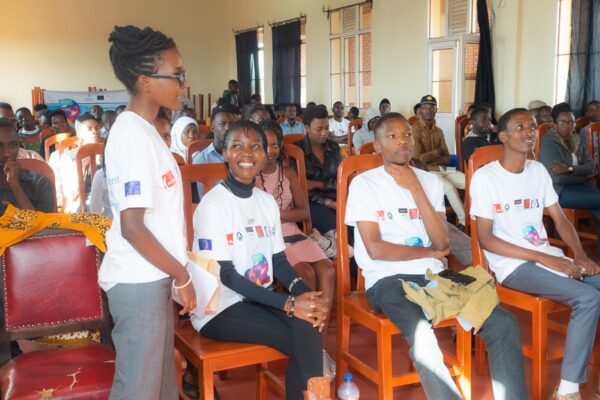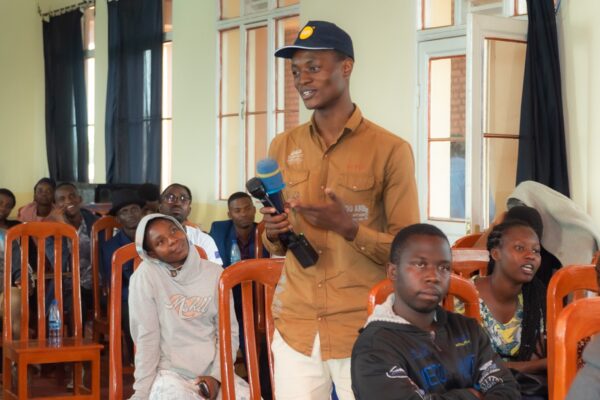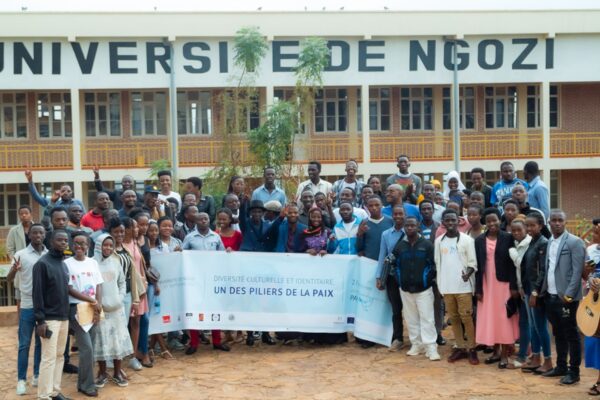Giving youth a voice to cultivate peace in the Great Lakes Region

Being young symbolizes great energy, positivity, and the zeal to make things happen. It also represents change, progress, and the future. If we lead our youth in the correct direction by providing platforms and establishing systems of learning and collaboration as well as amplifying grass-roots youth-led initiatives, they campion the fight against inequality, persecution, and climate change. Youth are our future gateway towards positively transforming our society. However, young people in the Great Lakes (GL) region, here understood as the four countries covered by the Interpeace regional programme —which consists of Burundi, the Democratic Republic of the Congo (DRC), Rwanda, and Uganda—, face obstacles when it comes to the availability of opportunities to channel their energy and enthusiasm to accomplish extraordinary things and influence decision-making in governance, peace and development processes at the local, national and regional levels.

Past and persistent violence have had multifaceted effects on youth, who constitute the majority of the population of the GL nations. They face direct violence in some parts of the GL region, forced recruitment into armed groups, intergenerational trauma transmission, displacement, lack of access to quality education, and livelihood options. Some of the impacts and risks that disproportionately affect youth are exacerbated by cultural, ageist, and gender norms. Due to these obstacles, significant number of young men and women face barriers to civic engagement and involvement in political and peace processes.
In this context, Young Innovators from Burundi, supported by Interpeace and the Centre d'Alerte et Prévention des Conflits (CENAP), a consortium partner of the Youth Innovation Lab for Peace programme, funded by the European Union and the Swiss Development Cooperation (SDC), organized an event on intercultural exchange with young Burundian and Congolese academics, where youth reflected on the theme: "Respect for identity and cultural diversity, one of the pillars of peace." The activity sought to increase support for youth leadership in peacebuilding while empowering young people with skills and knowledge that enable them to effectively play a role in governance, peacebuilding, and development processes at the local, national, and regional levels. In close collaboration with young innovators from Ngozi University in Burundi, over 70 students from different cultural backgrounds, participated.

The rector of Ngozi University, while addressing the participants, remarked that peace has always been among humanity’s highest values, and it should be sort above knowledge. He urged the youth to take an interest in and commit themselves to building peace from an early age. "This event and the youth programming are relevant and should be supported because they promote youth involvement in peacebuilding, given the turbulent history Burundi and its neighbours in the GL area have endured," he said.
On their part, the students had a very lively and enriching exchange on the challenges and ways to promote respect for diversity. Young student musicians played thematic songs on peace, respect for diversity, and dialogue, which made the exchanges pleasant and informative. The event also brought out challenges to respect for diversity that young people experience. These include the traumatic wounds of the past conflicts; the negative influence of the elderly or relatives hurt by the past violence; the manipulation of young people by political leaders; a precarious socio-political environment conducive to conflicts; the promotion of private interests to the detriment of the public interest; poverty in general; and the precariousness of young people. Significantly, students also had the opportunity to learn lessons in respect for diversity shared by young innovators and other students.

Through discussions for collective action and advocacy, Interpeace's primary goal is to empower the youth in the Great Lakes area to have a greater impact and leadership role in regional peace processes. We aim to provide spaces for young people to express themselves by producing and sharing messages of peace and for them to analyse challenges of respecting diversity in general and particularly in a student environment; and to share positive experiences in valuing diversity.
